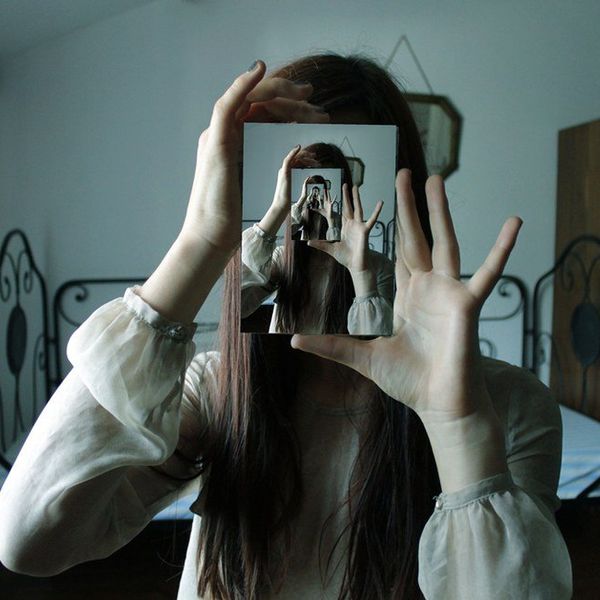None of us have been cute our whole lives. Whether you've untagged yourself from every photo on Facebook taken before 2009, or whether you keep them on your own phone to use as an icebreaker, there are regrettable hairstyles and cringe-worthy outfits and uncomfortable growth spurts in every person's past. But regardless of the secondhand embarrassment it causes you now, that stage was important. Being an ugly duckling did some good for you, and here's why.
Somewhere around 12, your body started actively trying to make you miserable. Someone had to tell you that deodorant was a thing that was relevant to your life. Someone pointed out that you were growing new body parts -- or that you weren't. And that was humiliating and it was gross and after a while, you ended up kind of learning to roll with the punches.
You learned to function even when you were excruciatingly aware of the fact that you were wearing a pad or that everyone else had gotten the memo to buy skinny jeans. After a certain age, almost everyone is conscious of how they appear to the people around them, all the time, and your awkward phase can teach you what to tune out and what to pay attention to. You know your hair doesn't look the way you wanted it to? Great, you still have to go to soccer practice or chess club or whatever, so your hair has to take a backseat.
Now, I'm definitely not trying to convince anyone that crippling insecurity is fun or healthy. I was a mean, pessimistic 12-year-old pretty exclusively because I didn't like myself. When you're consumed with the way you look and act and are perceived, other people stop being people and start being stock characters. They can't possibly be as miserable as you are, so it's perfectly fair for you to treat them terribly.
But at some point in that mire of self-hatred and misery, you get a spare moment to hear someone else say they don't like themselves. And you realize that maybe your loathing matches. You know how it feels to wish something was going differently, and now the kid across from you isn't a one-dimensional chorus role in the tragic musical of your angst. They have their own world, and the way you treat them makes it better or worse.
In the end, that's the actual substance of your awkward stage. You're in this weird middle ground between kid and adult. Your body is rearranging itself, to disastrous results, and so is your personality. You might start to hear snippets of "real" problems, of "adult" problems that the grown-ups always covered your ears to before. You are not as clear-cut as you used to feel.
There are all kinds of psychology to this, but I like to think you are Galileo realizing that you are not the center of the solar system. You learn enough about your own planet that you start seeing the other planets cycling past you.
Your awkward phase is struggle boot camp. You're getting all the bumps and bruises of learning to cartwheel so that you're less afraid in high school when you have to learn to do a handspring. You get to know yourself at your worst, and you learn to empathize and to try again and yes, to wash your hair more often.
Under the guise of middle parts and Aeropostale hoodies, you are learning to get comfy with being a work in progress. So cheers to the awkward phase for getting us all to where we are right now.





















